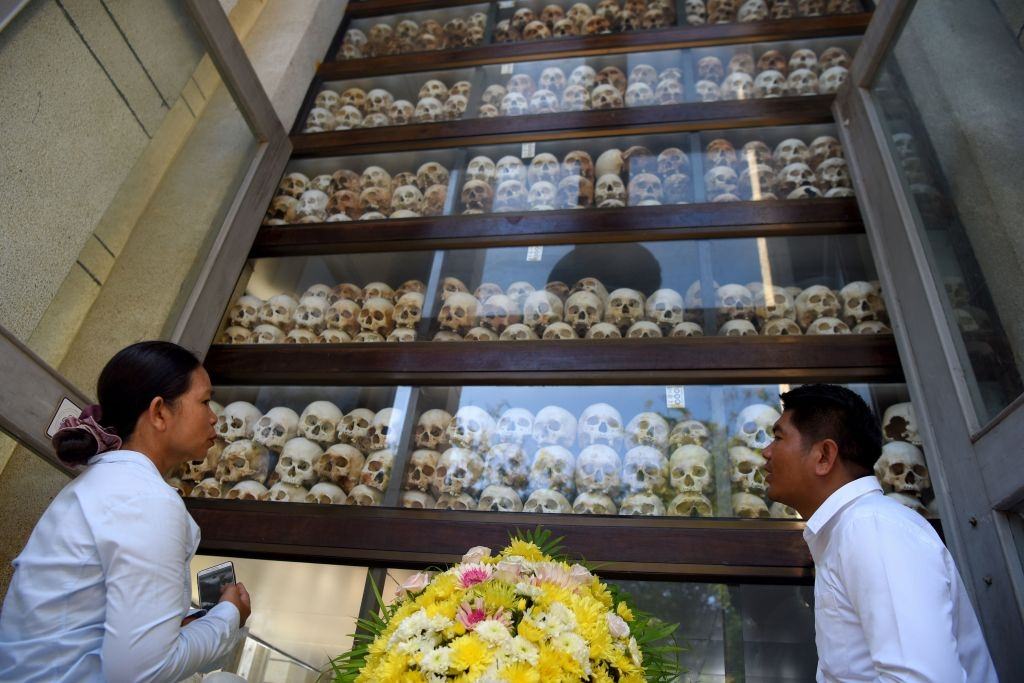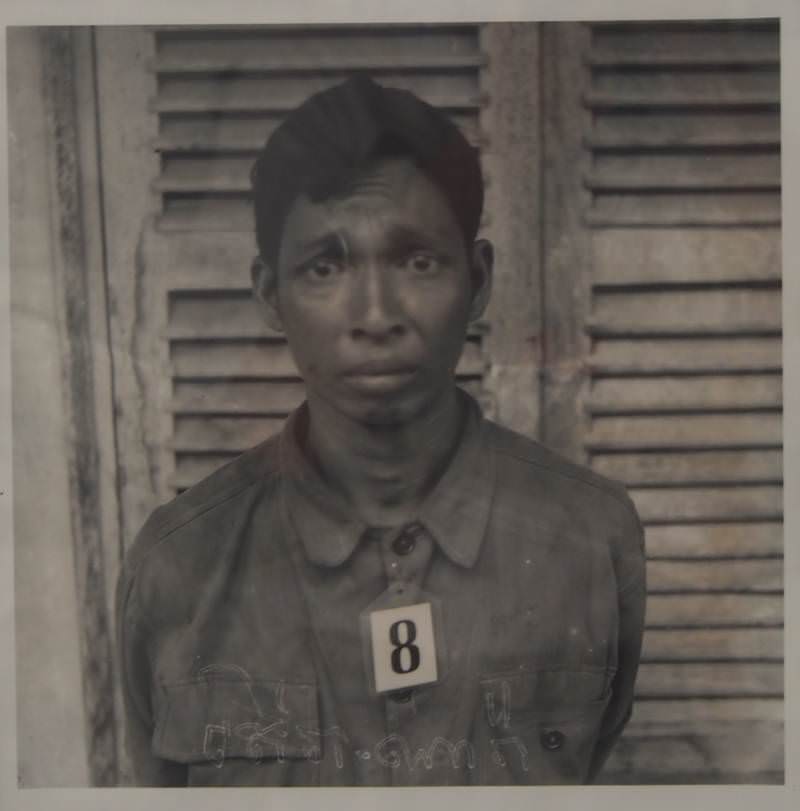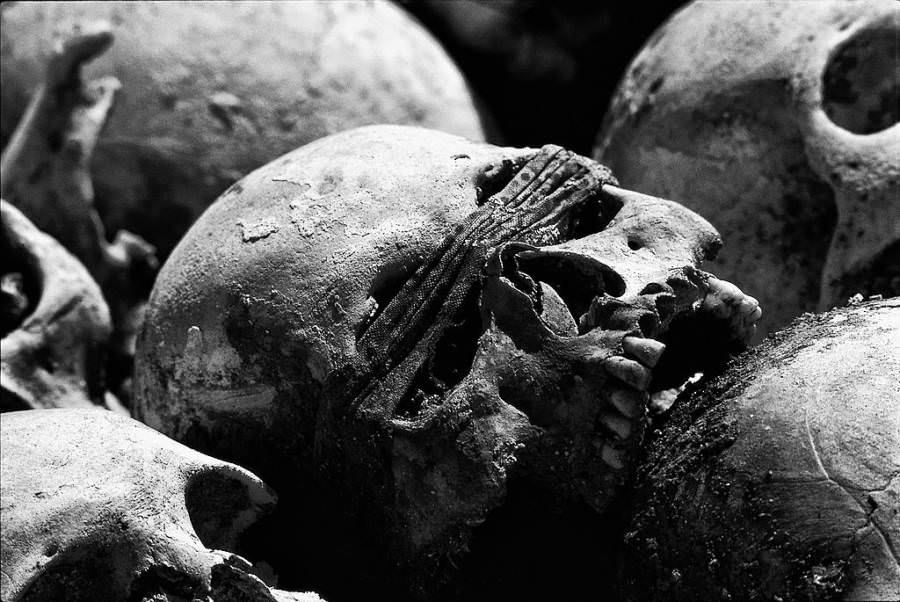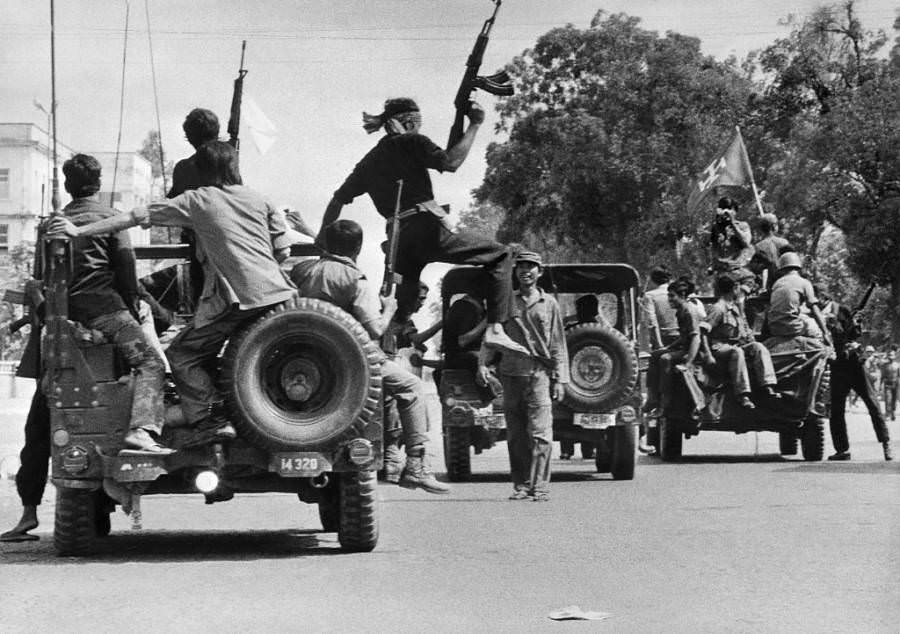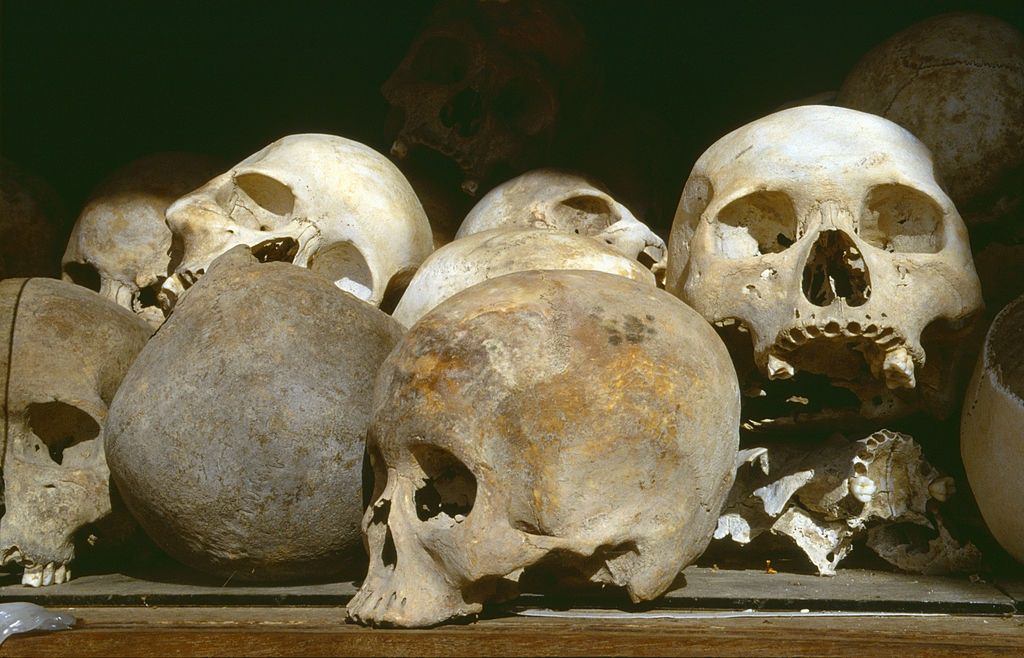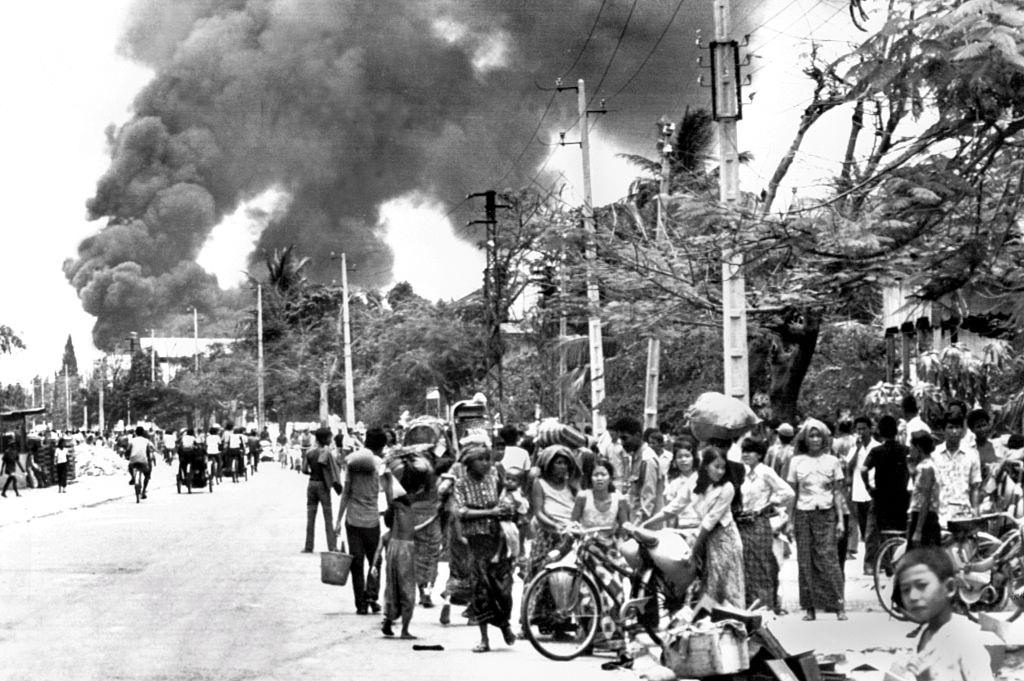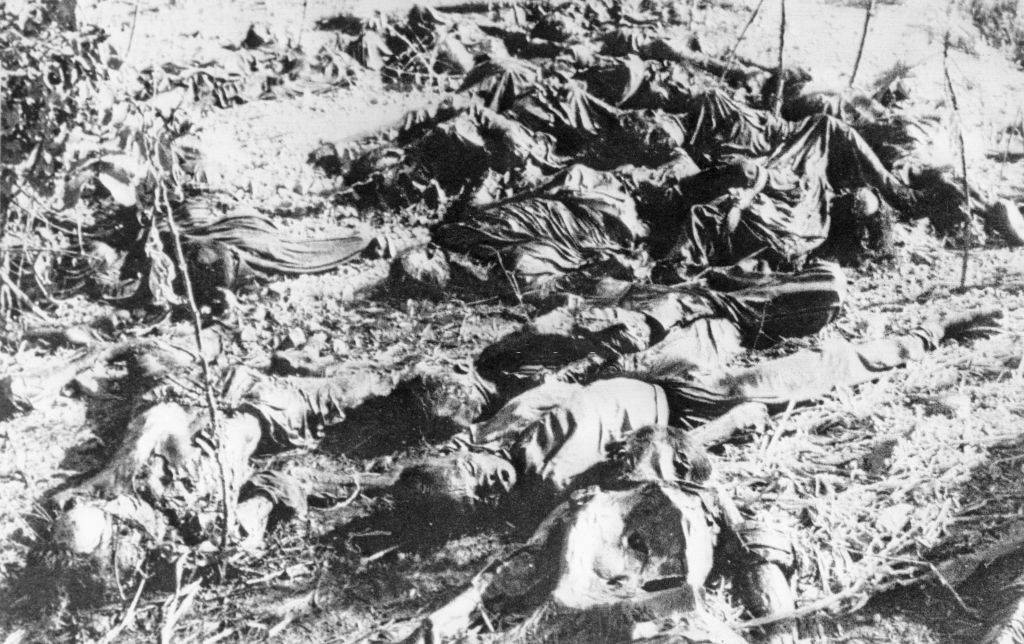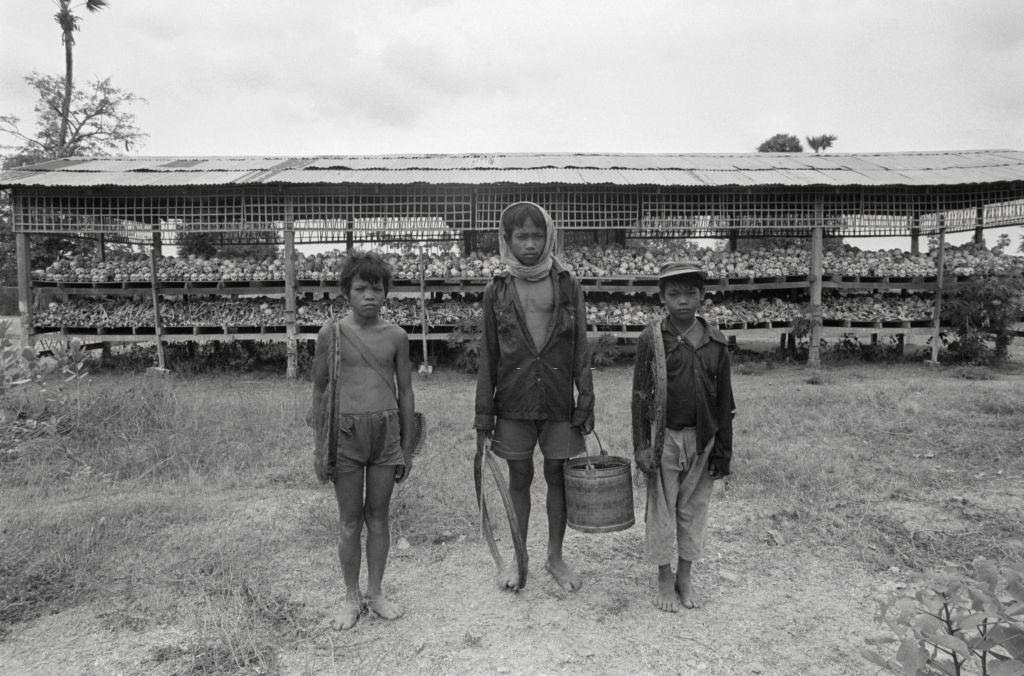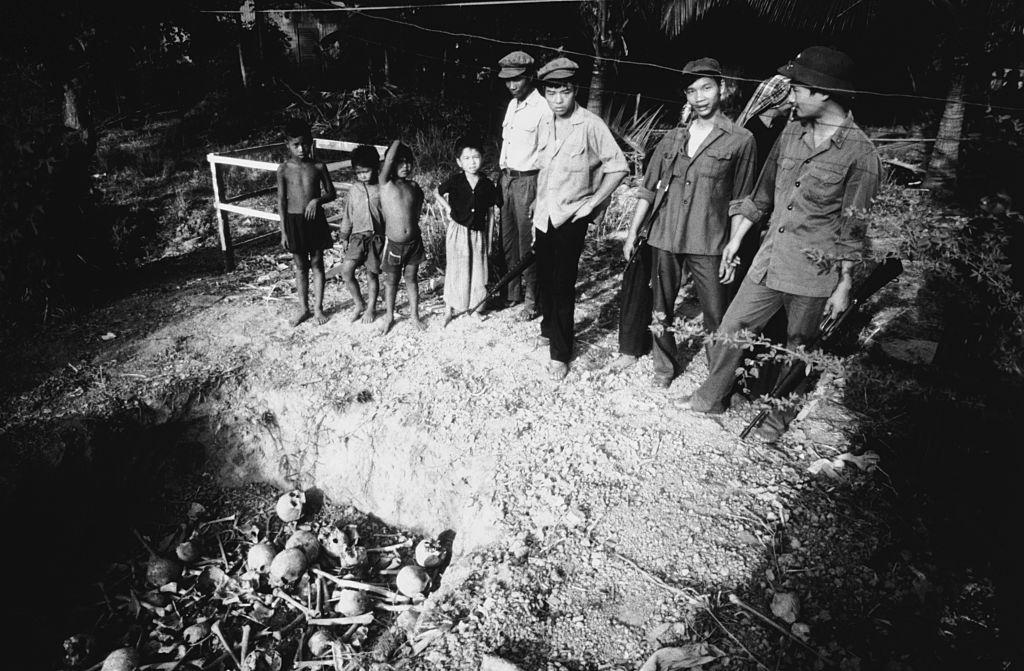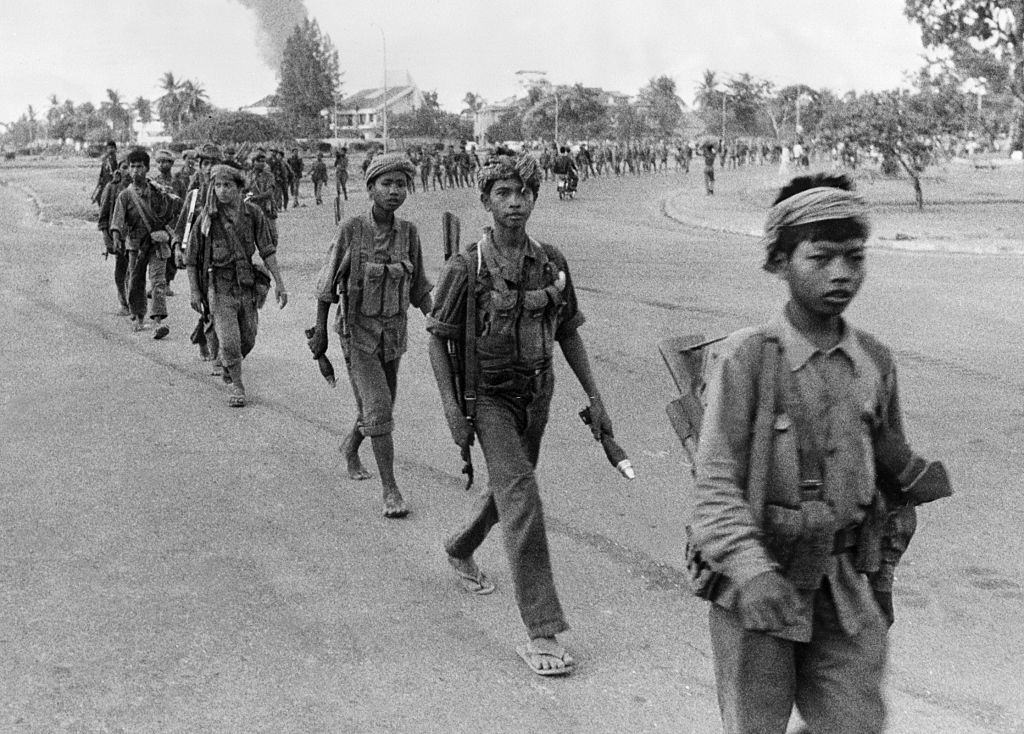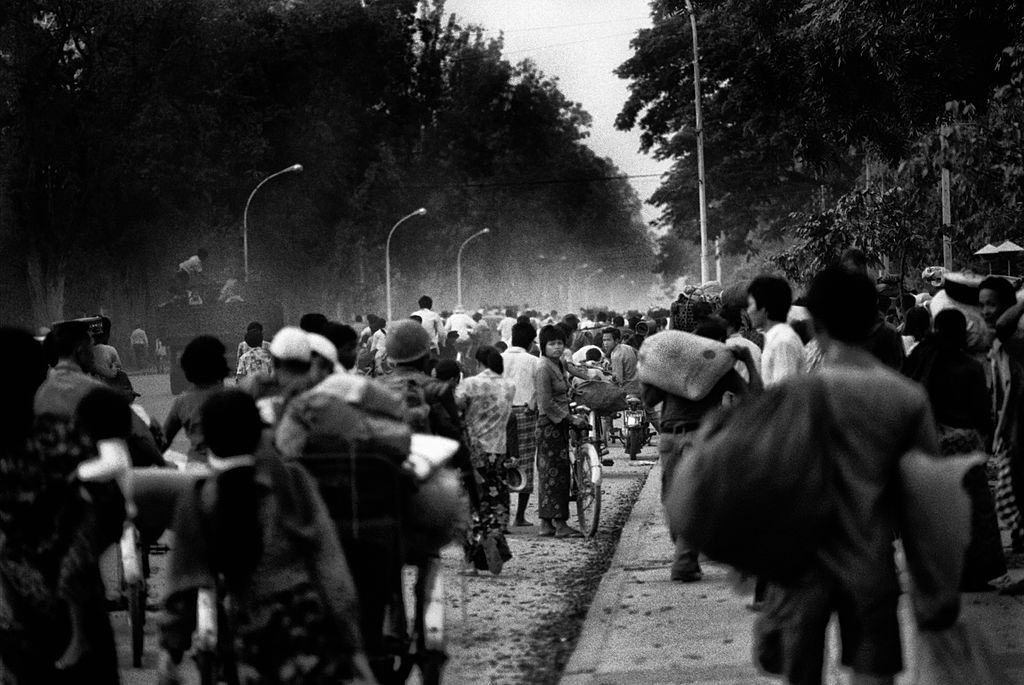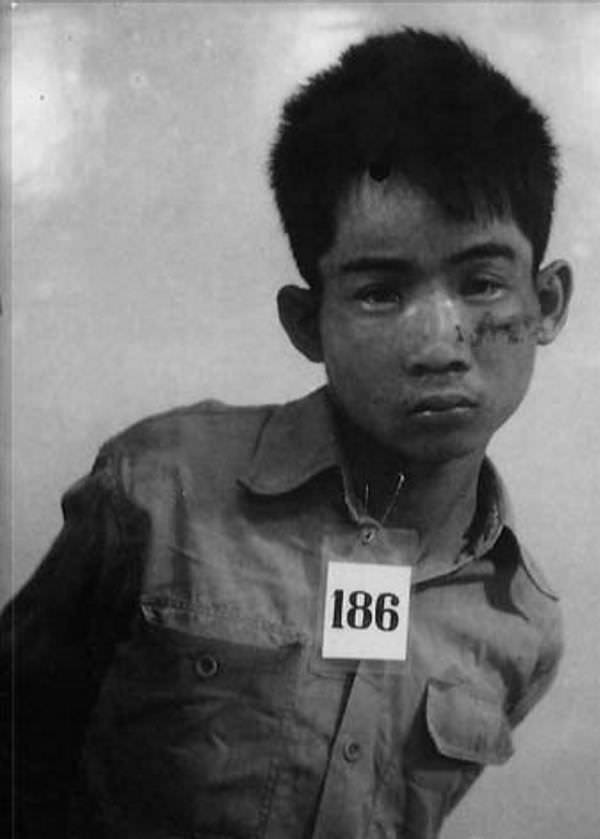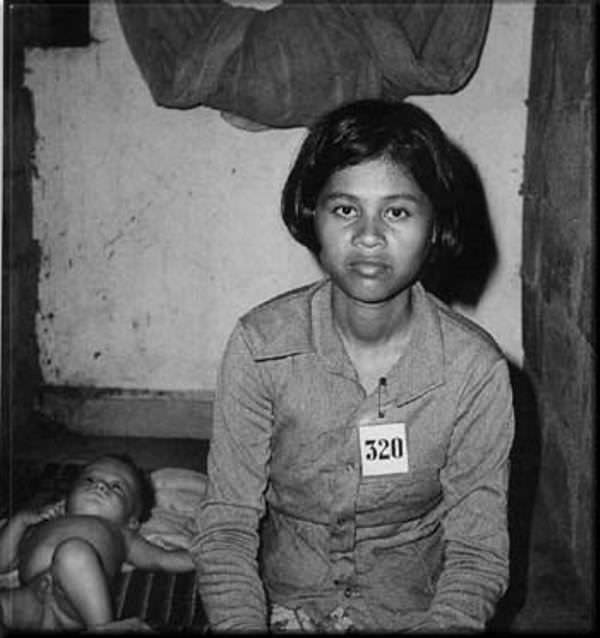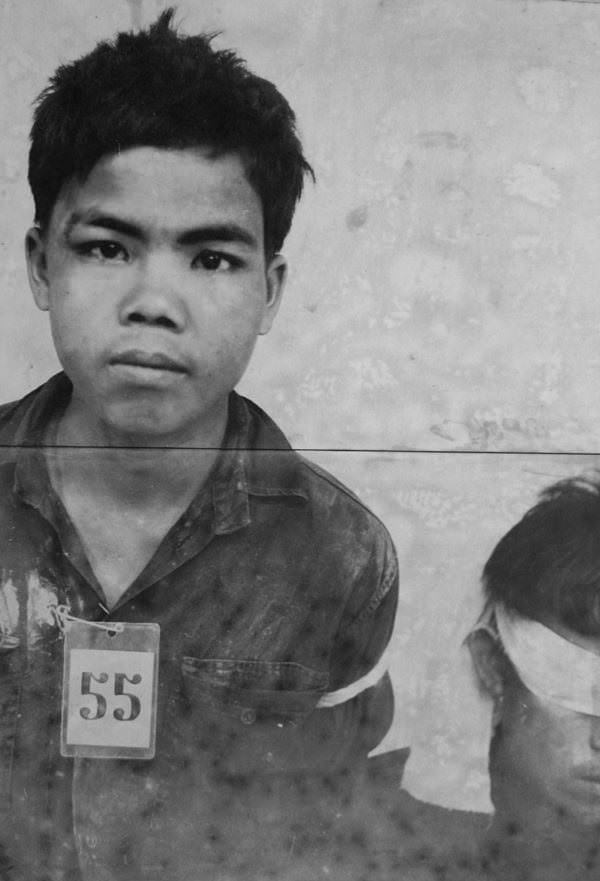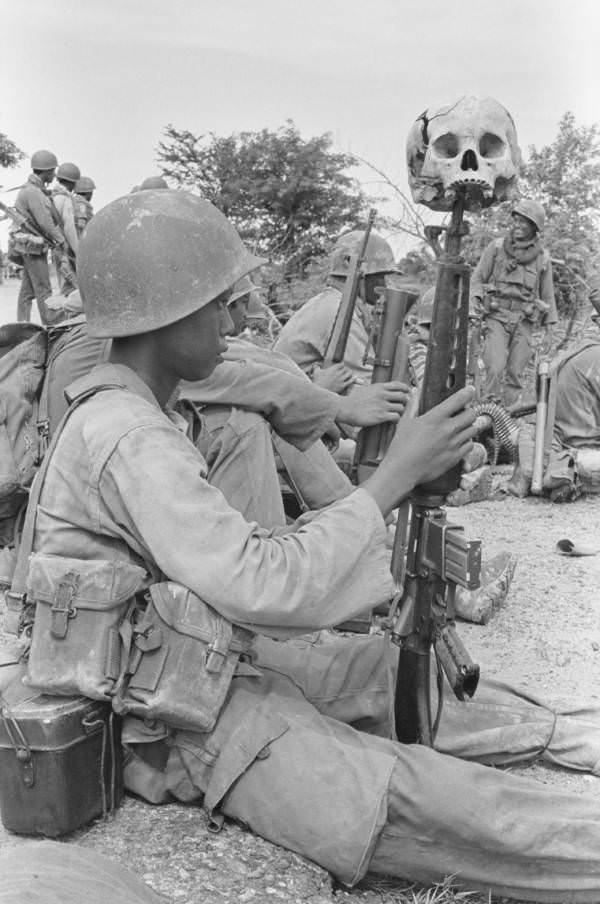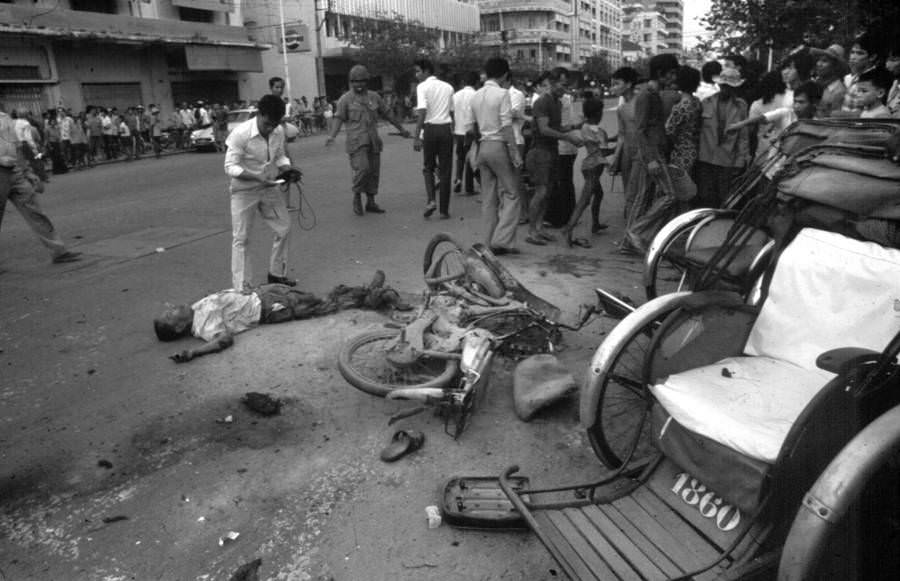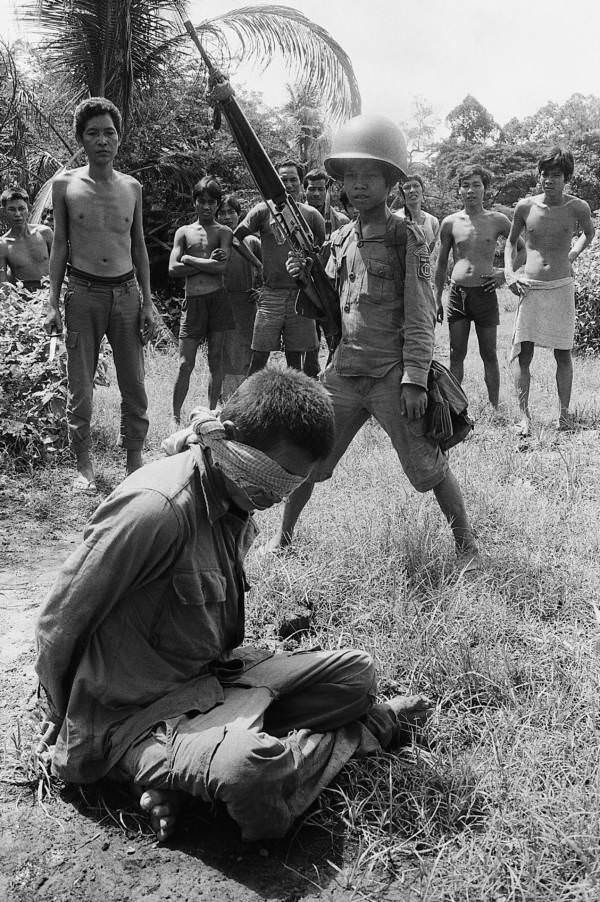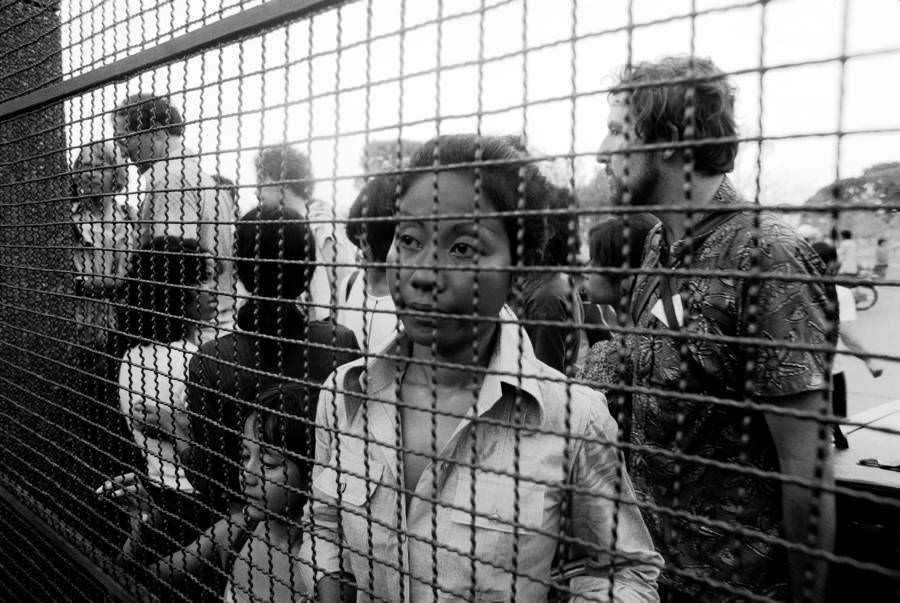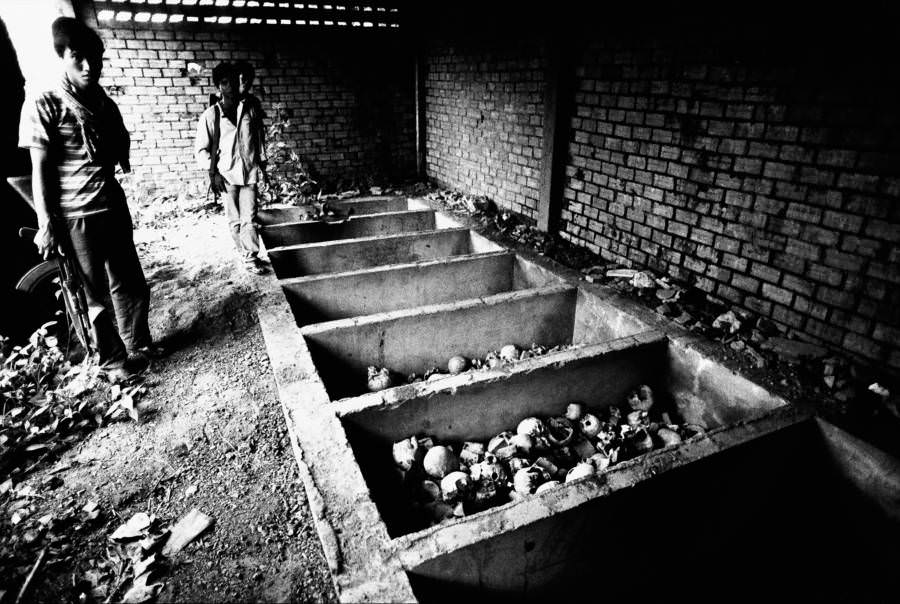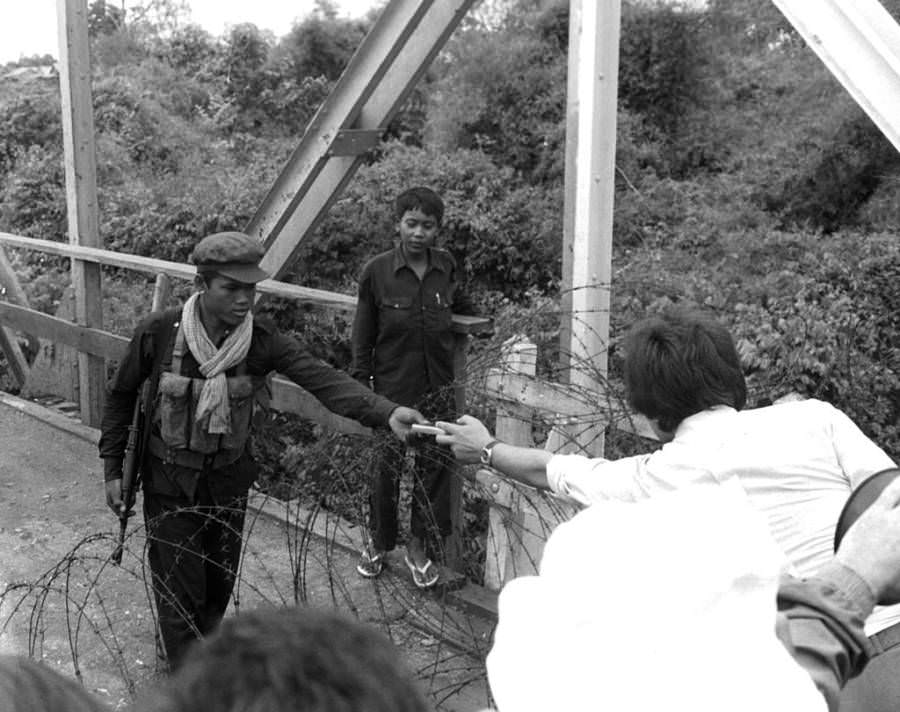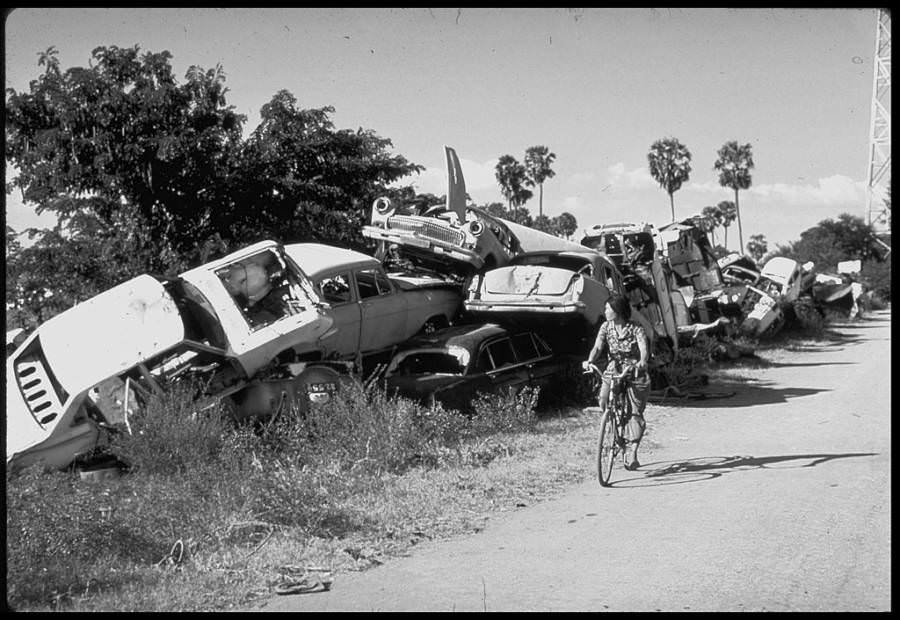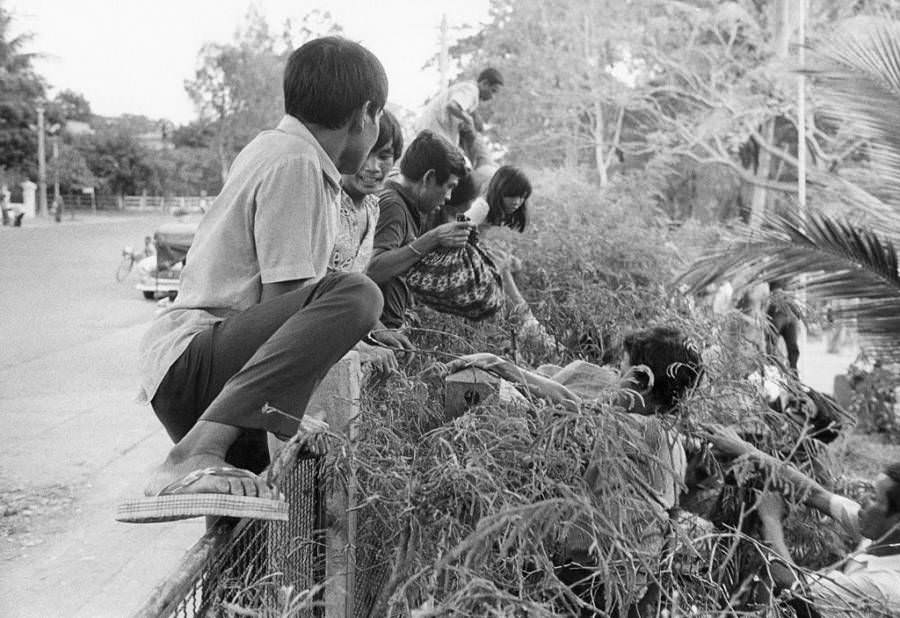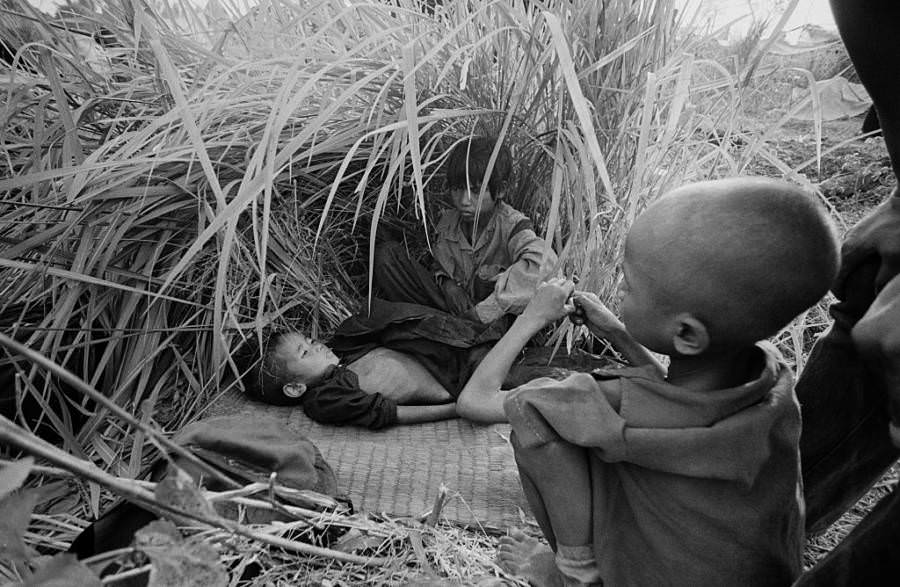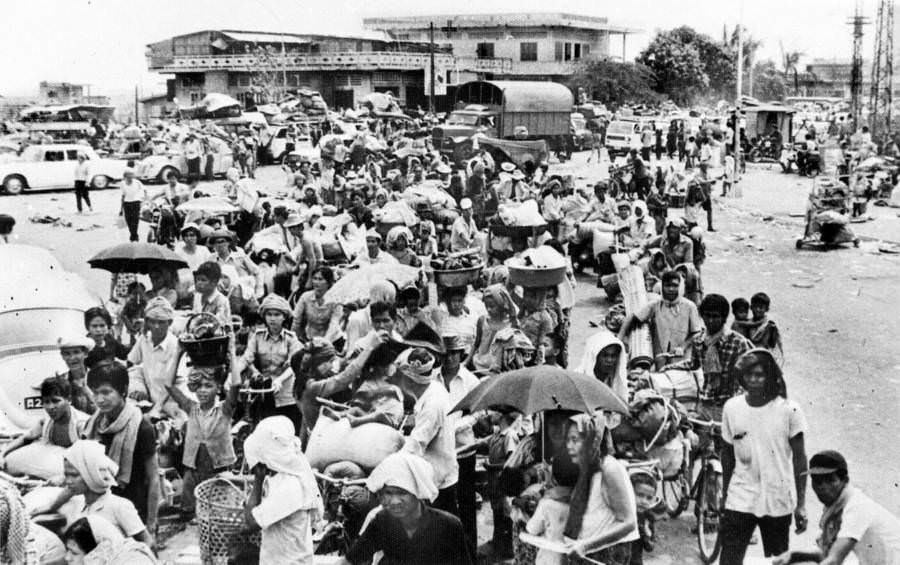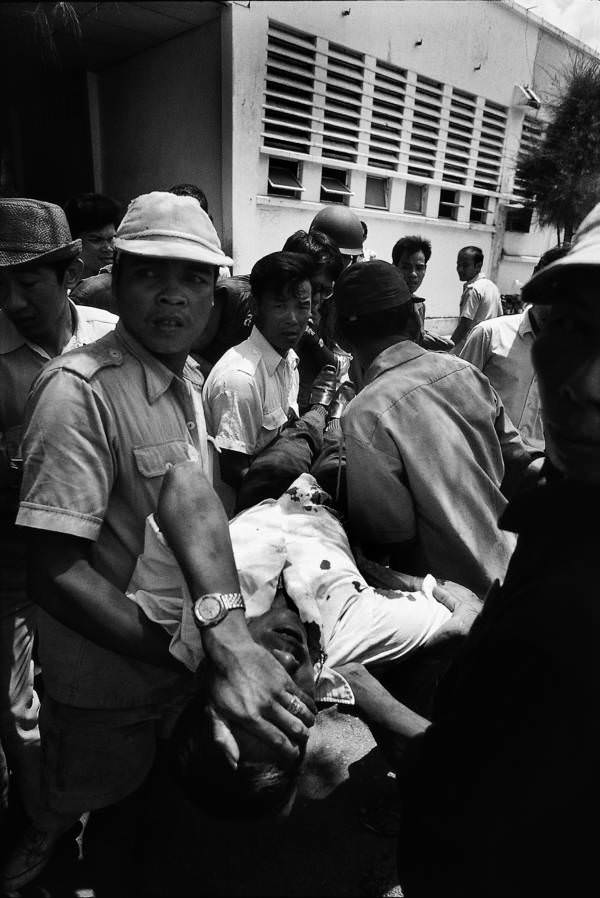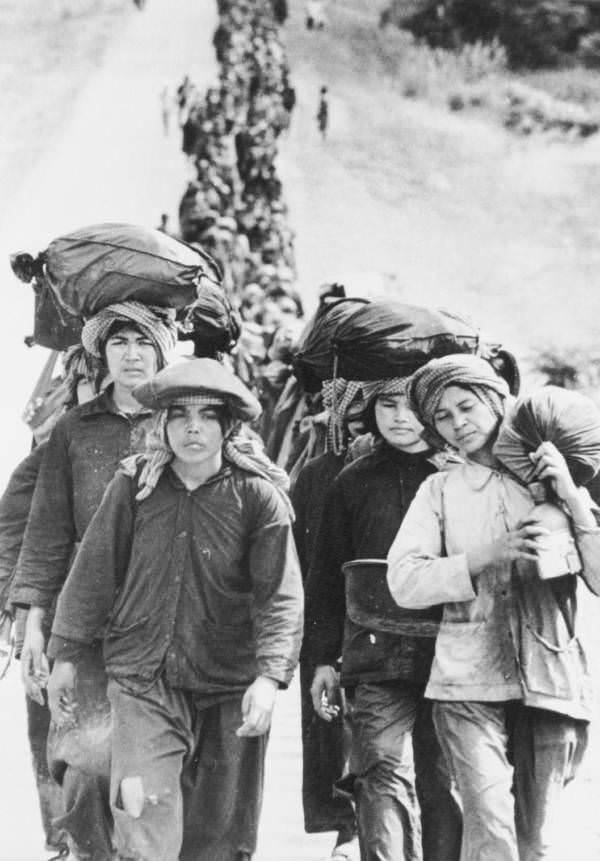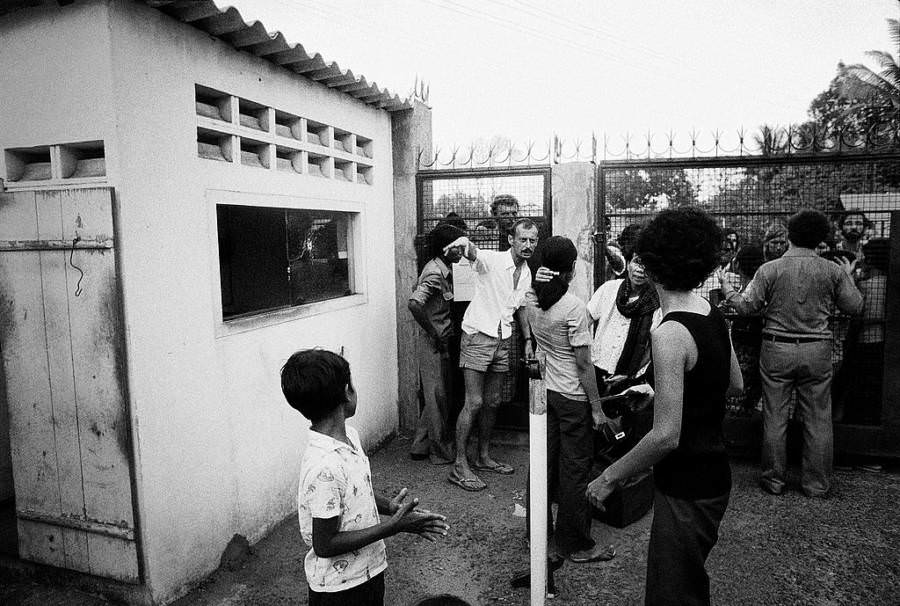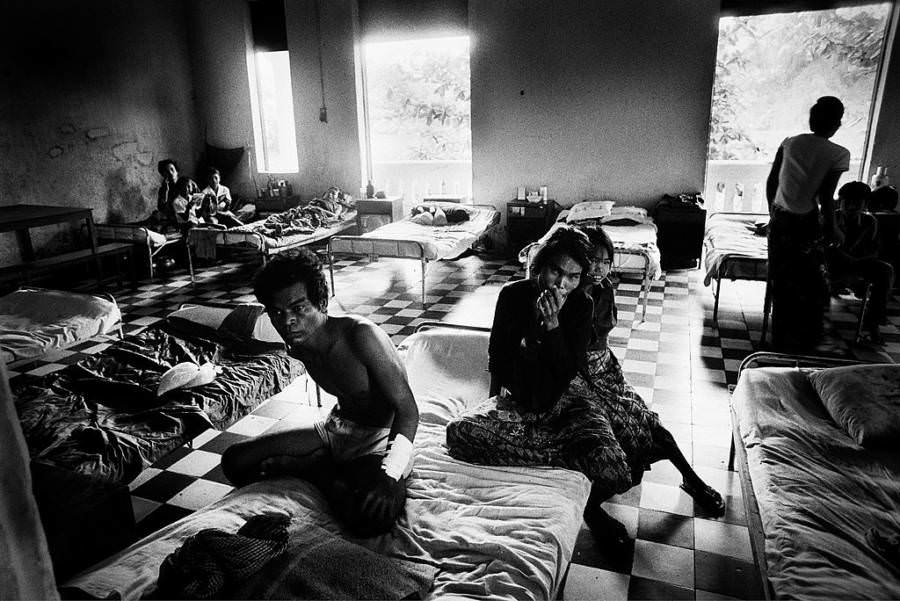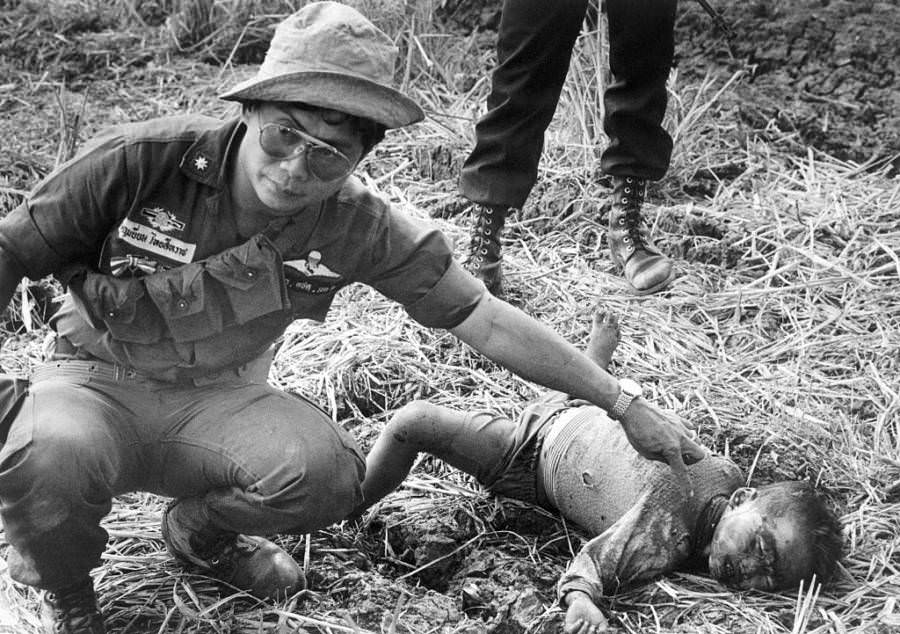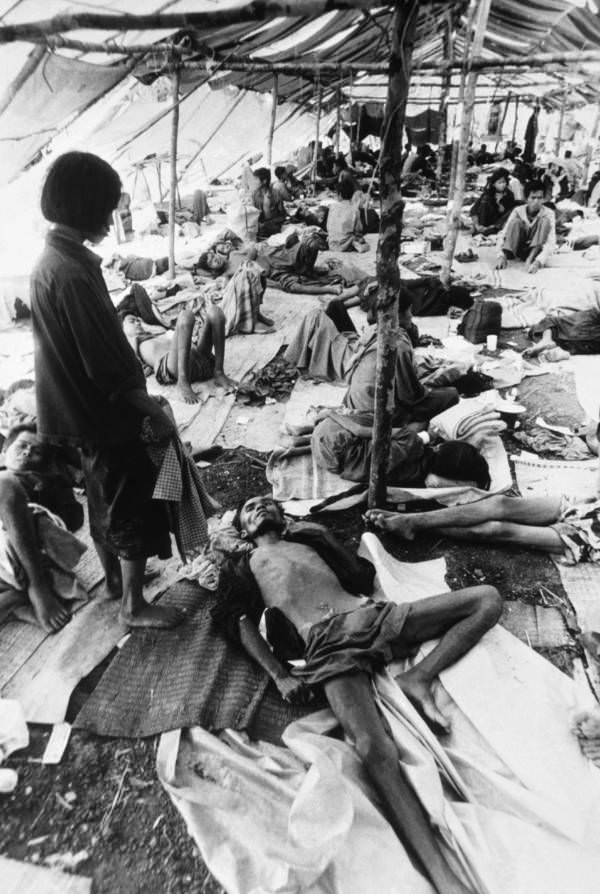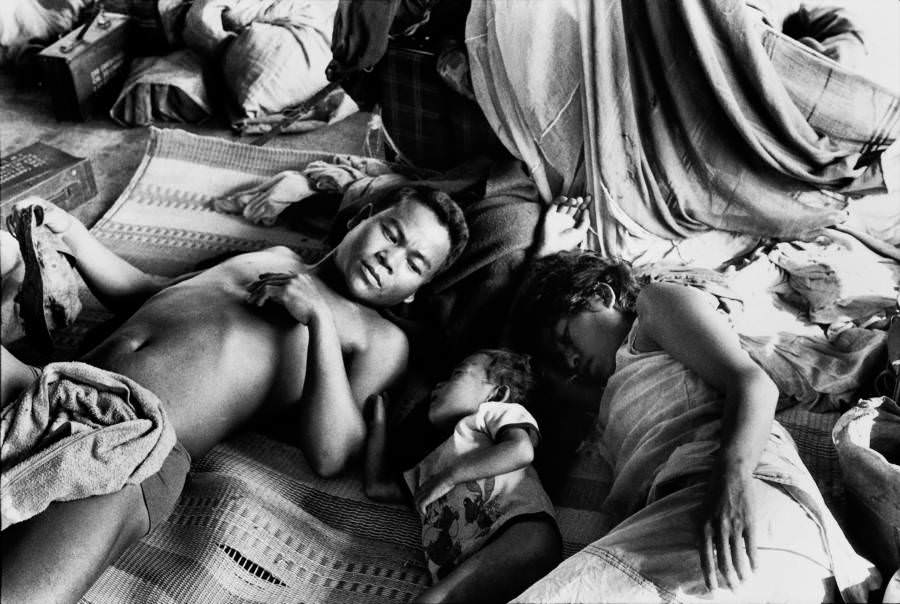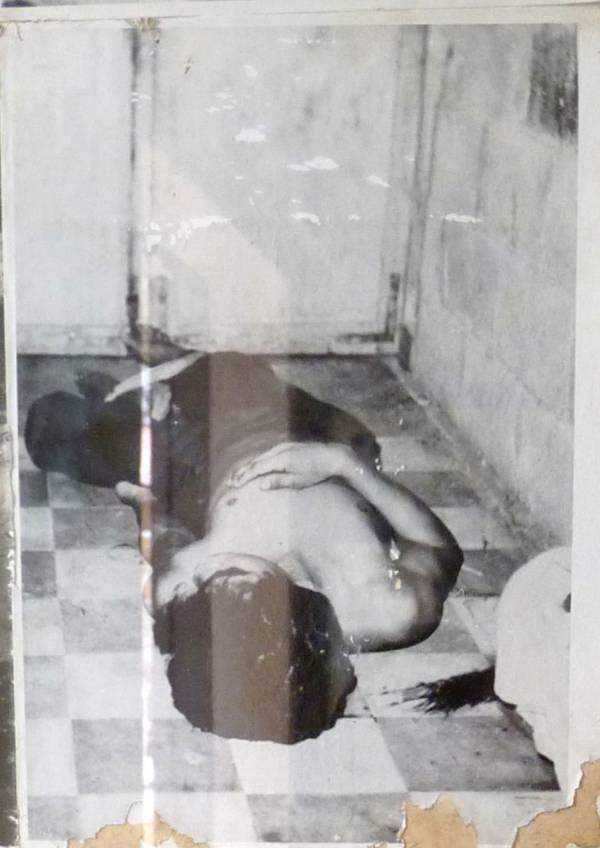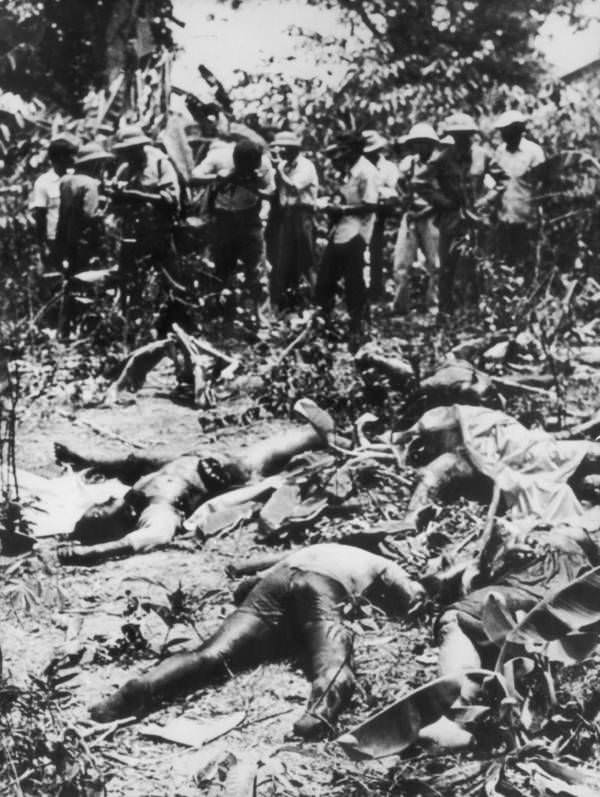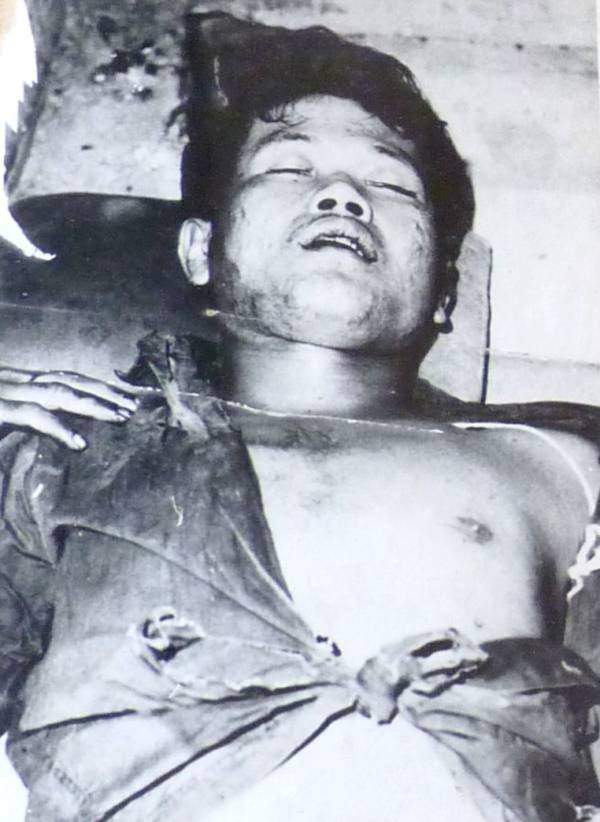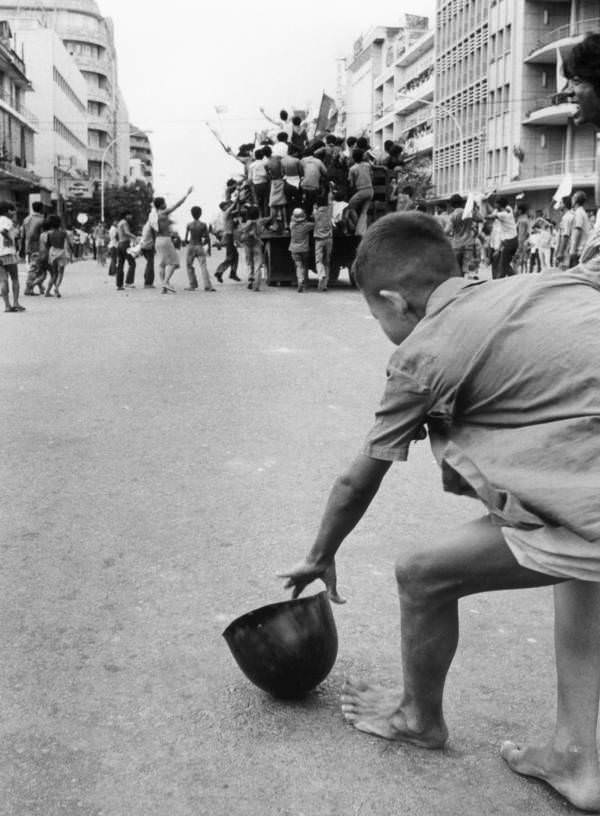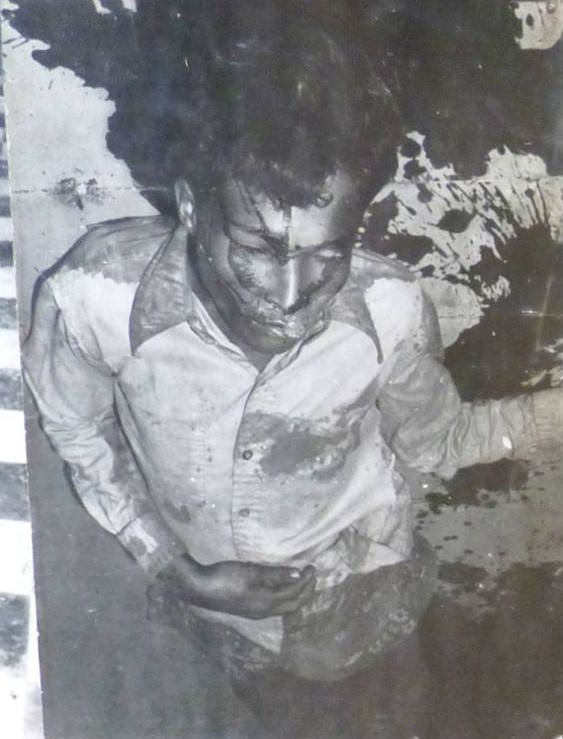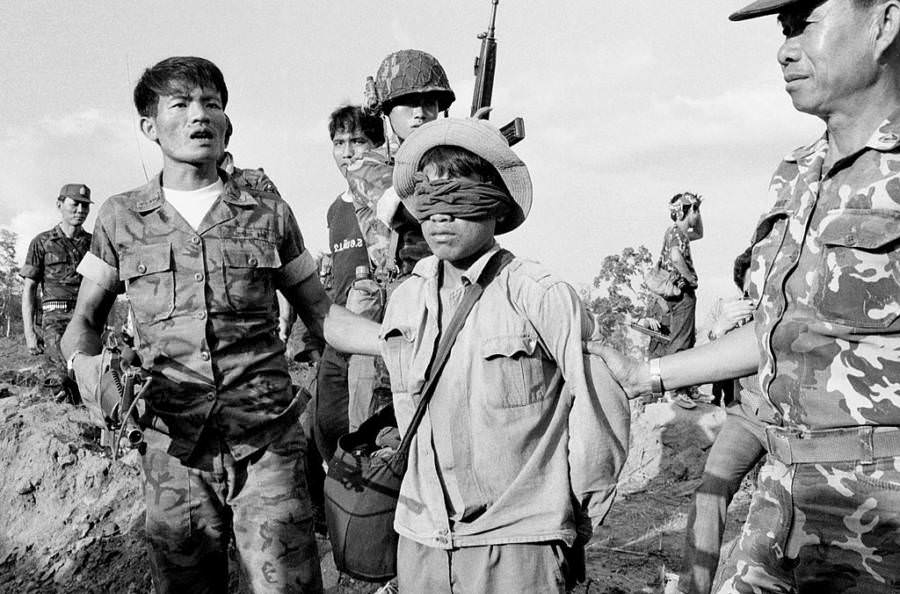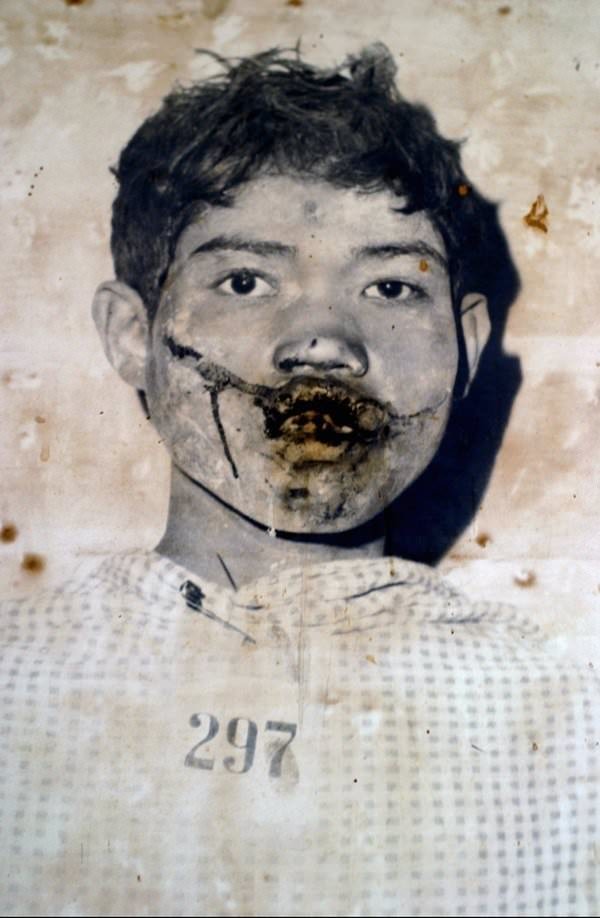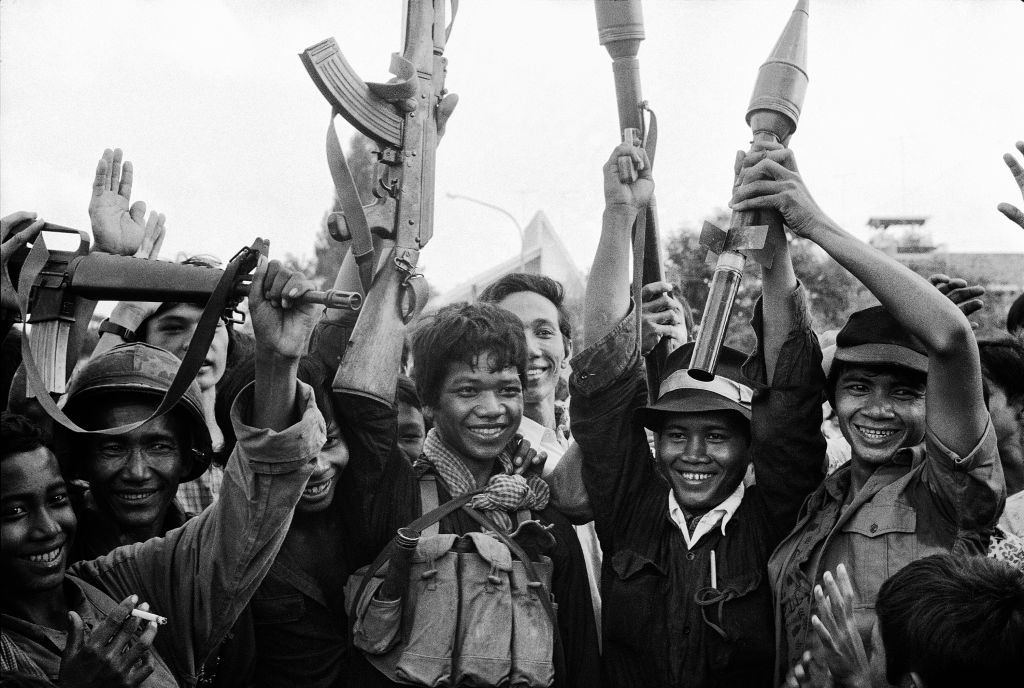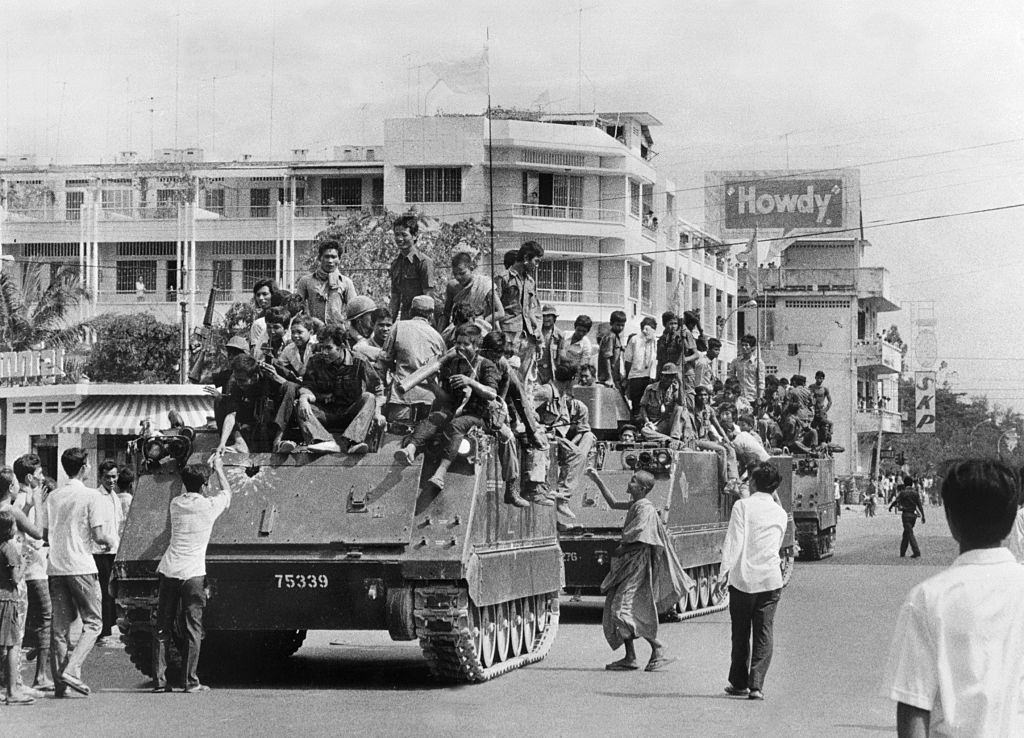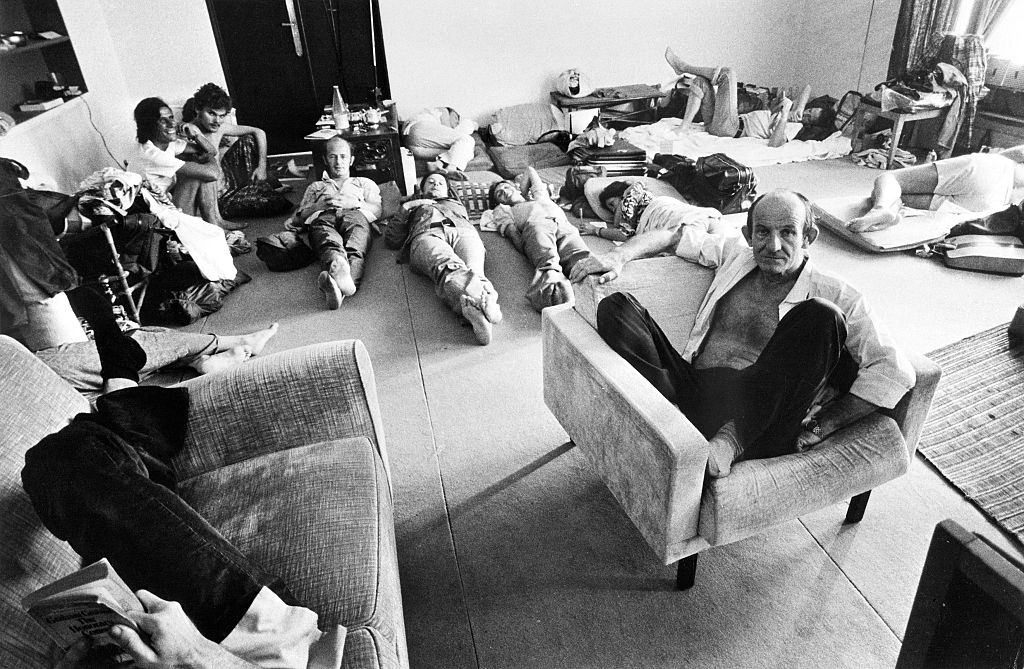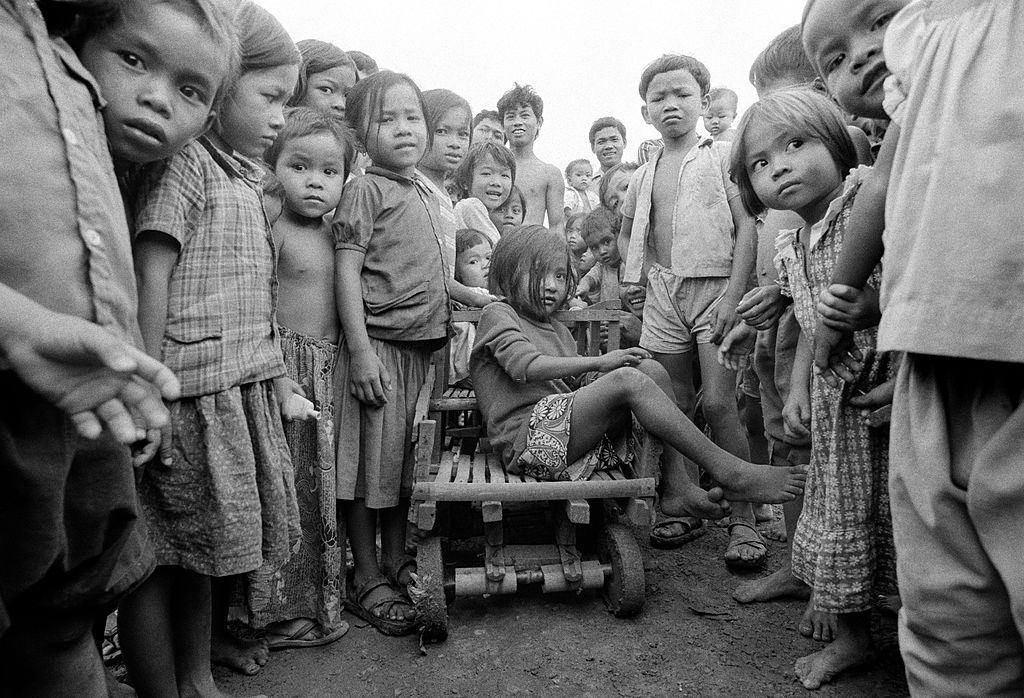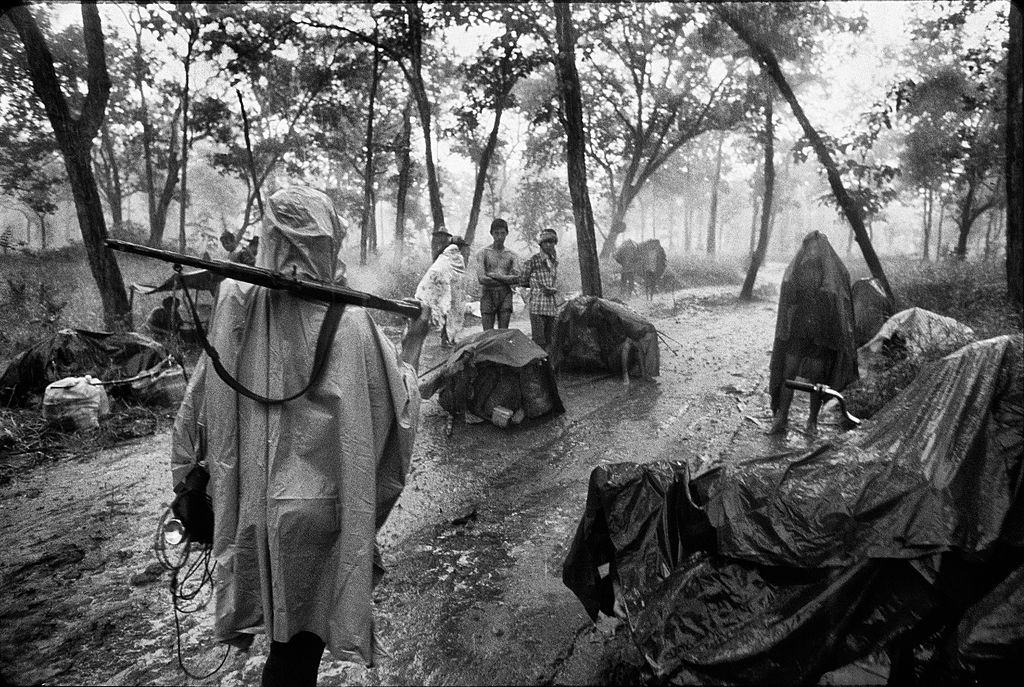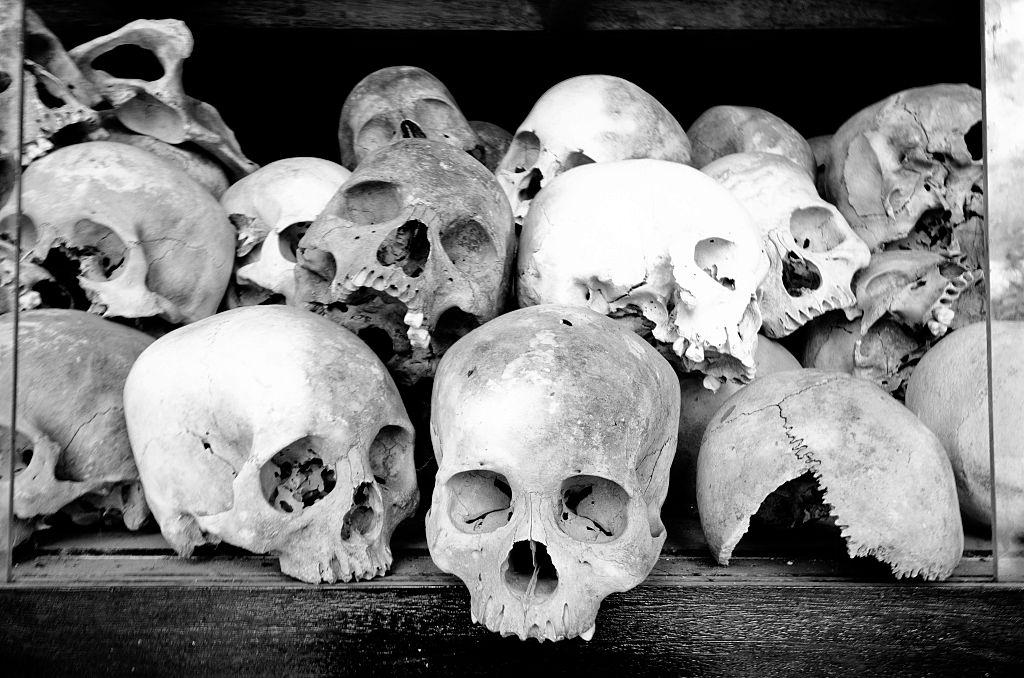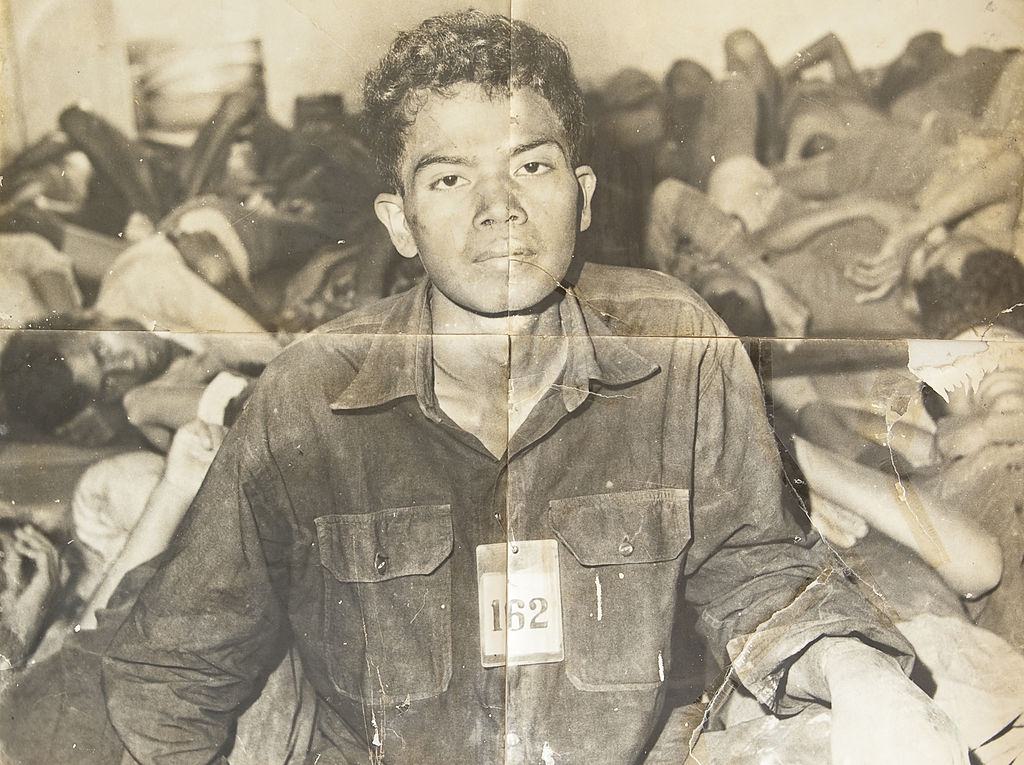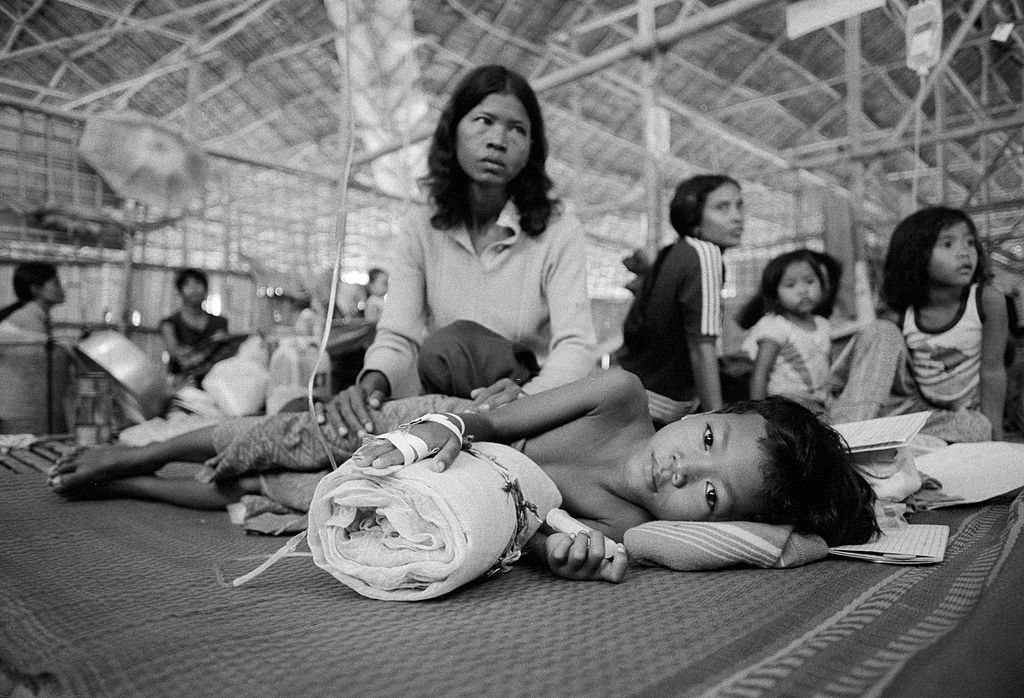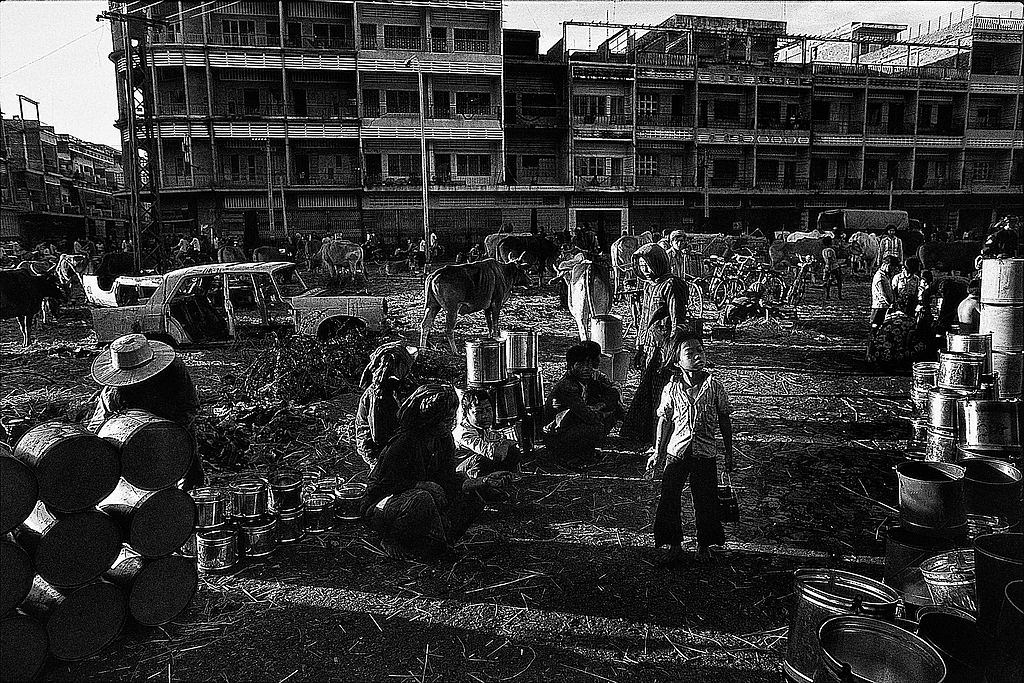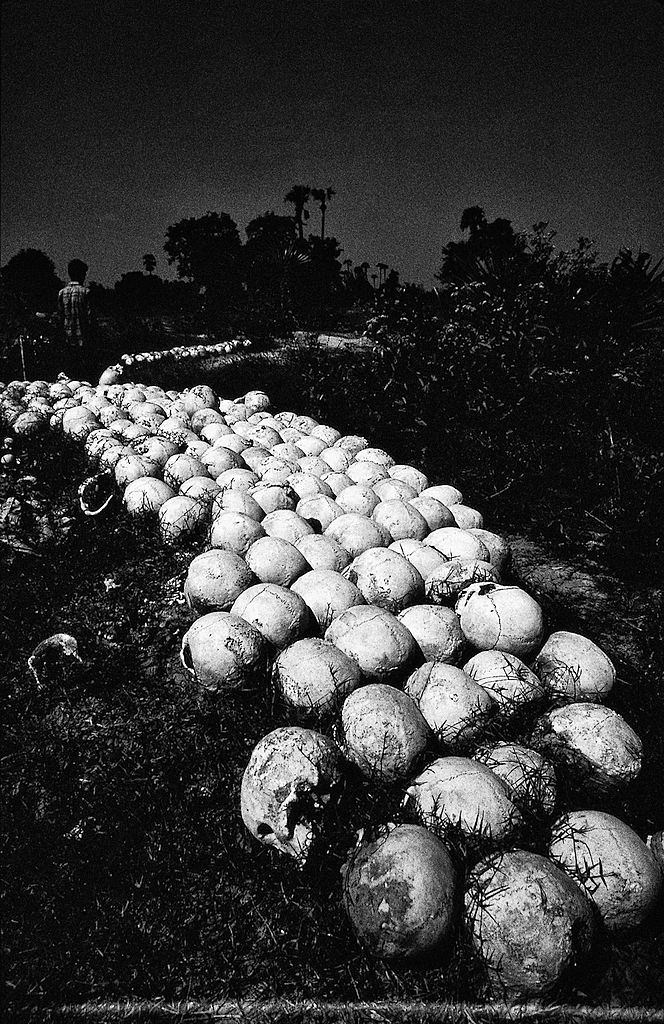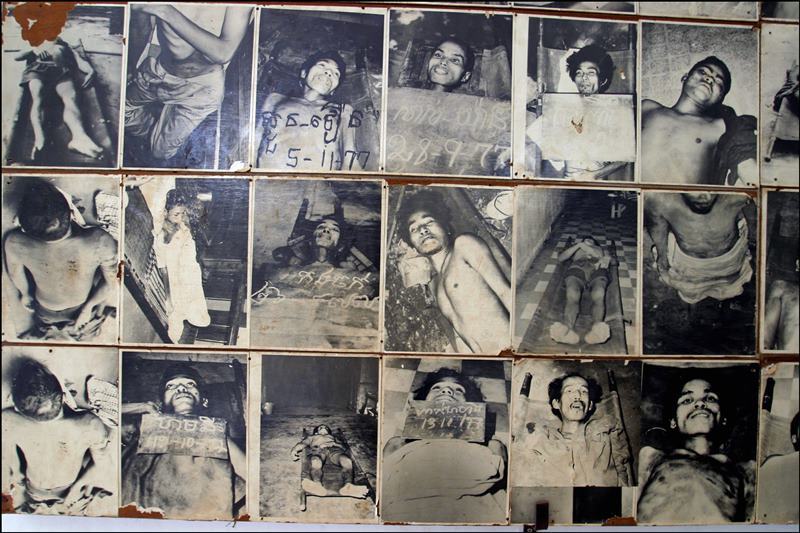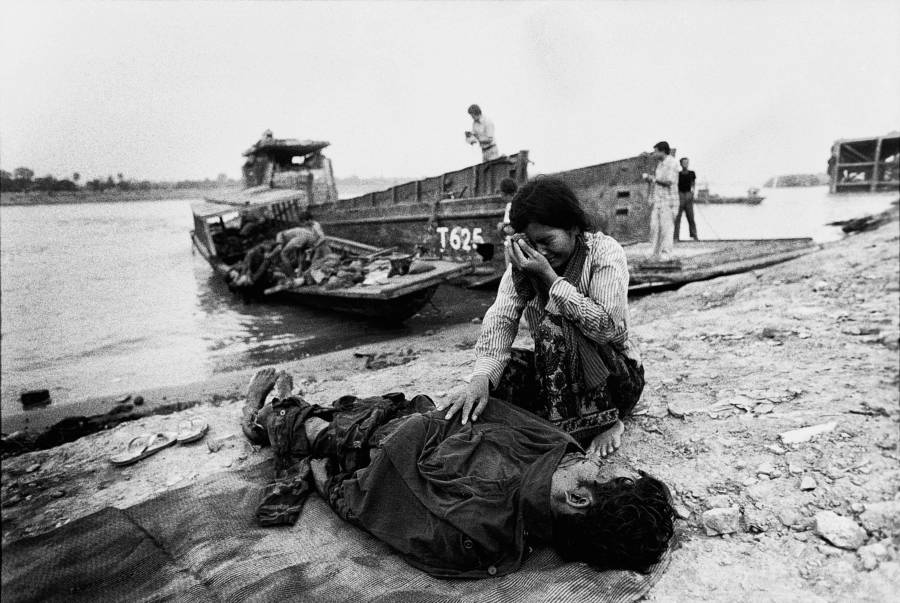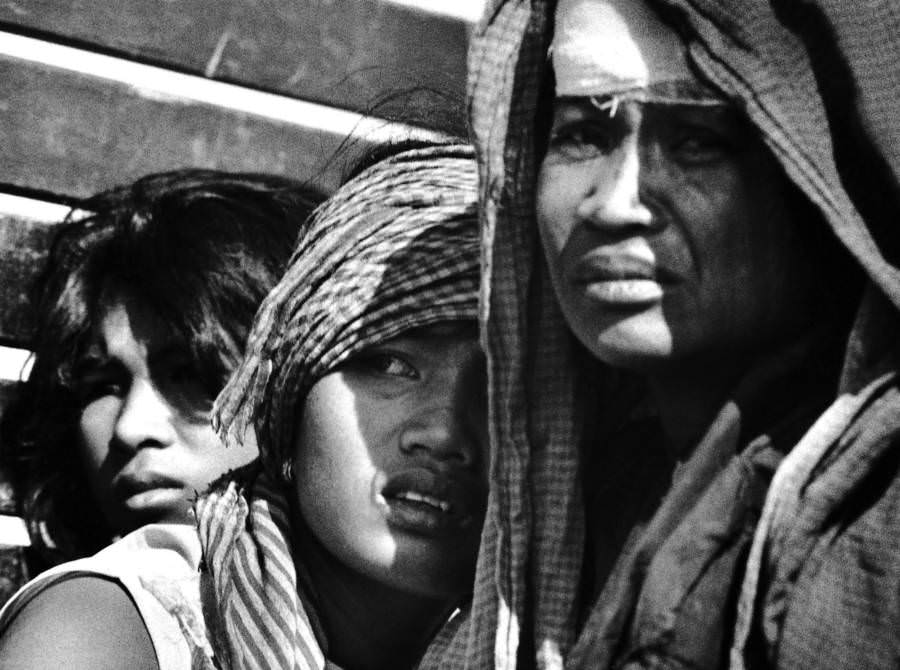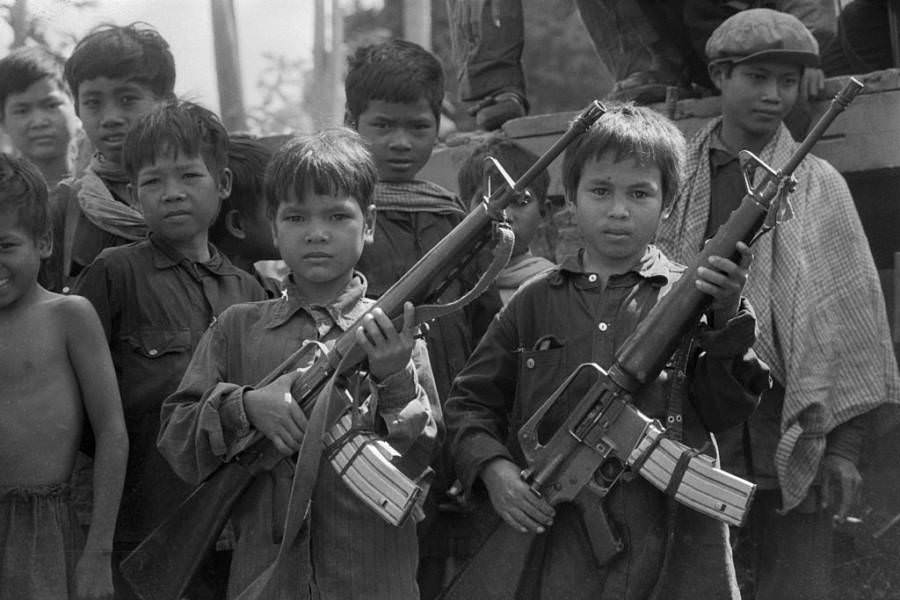The United States extended the Vietnam war to Cambodia, which radicalized and disrupted the political system. In 1965, Price Sihanouk of Cambodia officially cut ties with the U.S. and made the country natural in the war. This sudden shift in the policy allowed the Vietnamese communists to use the land of Cambodia. In response, the United States bombed military installations and Cambodian villages. Between 1965 and 1969, the U.S. dropped more explosives on Cambodia than the entire World War II bombings by the allies, which killed over 150K people, mostly civilians. During that time, Khmer Rouge, which was a small rebellion movement operating in the remote jungle and mountain areas became stronger, and they collaborated with the deposed leader and gained more support in all over the country.
Rise of Khmer Rouge
Eventually, the Khmer Rouge won, and in 1975 they invaded Phnom Penh and took over the city. After gaining control of the capital, they handed power to the leader of the Khmer Rouge, Pol Pot instead of Prince Norodom and he was forced to exile. The idea of communist-style Utopia inspired Pol Pot. There were a lot of self-sufficient and independent rural tribes in the northeast of Cambodia. They lived on the goods they produced through subsistence farming. Pol Pot considered the wealthy and businessmen as evil and inspired by the idea of a community that works together and untainted by the evils of money, wealth and religion. After becoming the leader, Pol Pot renamed Cambodia as Kampuchea and isolated the country from the global community. He forced the urban people into rural farming and abolished the country’s currency. Within days, the cities were evacuated, and the ownership of private properties was revoked. Everyone regardless of his or her former profession would work in the farms.
Cambodian Genocide
The people who denied or refused to follow the new rules were imprisoned, executed, tortured or starved to death in the camps. Farming is a daunting and challenging task, especially without modern machinery and equipment. People started dying from illness, forced labor, exhaustion and lack of medical facilities. Khmer Rouge did not care to about the sick people. And some people were also executed who were unable to work in the farms. Khmer Rouge soldiers have lack of command control skills because they were not trained to fight a guerilla war not to govern a country. They brutally punished and executed the people, especially the rich and elites. Khmer rouge recruited the soldiers from rural areas and ethnic minorities in the hills and mountains. The elites and wealthy businessmen maltreated them, and now the situation had changed the roles, and they falsely accused some people as foreign agents working against the Khmer Rouge and took the revenge. Those seen as intellectuals, or potential leaders of a revolutionary movement, were also executed. The country could not survive entirely on farming, so the government reduced food consumption and starved people to death. During the Pol Pot’s regime, an estimated 1.5 to 2.2 million Cambodians died and killed from 1975 to 1979.
The End of Pol Pot’s Regime
In 1979, the Vietnamese army invaded Cambodia and ended Pol Pot’s regime. The Khmer Rouge quickly moved back to the remote areas and remained active as an insurgency, albeit with declining influence. Pol Pot lived in the rural northeast of the country until 1997, and died under the house arrest. None of the members of Pol Pot’s regime faced any trial or punishment for their brutal crimes.
Below are some haunting photos of Prisoners and killing fields that depict the brutal genocide of Cambodian people.
#1 People looking at skulls displayed in a stupa during the annual ‘Day of Remembrance’ at the Choeung Ek killing fields memorial in Phnom Penh
#2 A terrified prisoner inside the Tuol Sleng prison where nearly 20,000 people locked in Tuol Sleng, only seven survived.
#3 Skulls lie in the killing fields of Choeung Ek, 1981
#4 Khmer Rouge soldiers drive through the capital, Phnom Penh. 1975.
#5 Skulls at the Killing fields of Choeung Ek
#6 Cambodian inhabitants wait in a street of Phnom Penh, 17 April 1975 as the gasoline depot burns before the Khmer Rouge enter the capital and establish government of Democratic Kampuchea (DK).
#7 Corpses found at a prison run by the former Khmer Rouge government, about 30 kilometres north-west of Phnom Penh, Cambodia, 28th February 1979.
#8 Mass Grave in Cambodia. The simple hut behind the three boys at the Choeung Ek extermination camp contains hundreds of human skulls and bones.
#9 Vietnamese soldiers and a group of children witness the unearthing of a mass grave, 1980
#10 The young Khmer Rouge guerrilla soldiers, 1975
#11 On the evening of the Fall of Phnom Penh to the Khmer Rouge on April 16, 1975 as night fall, thousands of people are streaming towards the center of Phnom Penh on Monivong Boulevard.
#12 A teen prisoner locked in Tuol Sleng
#13 A young girl with her baby in the prison.
#14 A teen prisoner with his brother.
#15 A young prisoner tortured brutally.
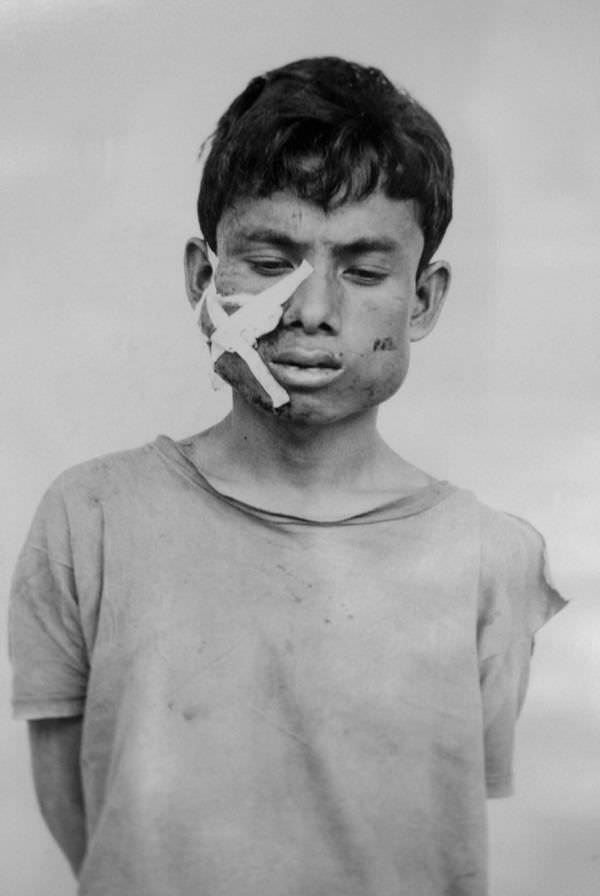
The Torture methods were "beating with fists, feet, sticks or electric wire; burning with cigarettes; electric shocks; being forced to eat feces; jabbing with needles; ripping out fingernails; suffocation with plastic bags; water boarding; and being covered with centipedes and scorpions."


